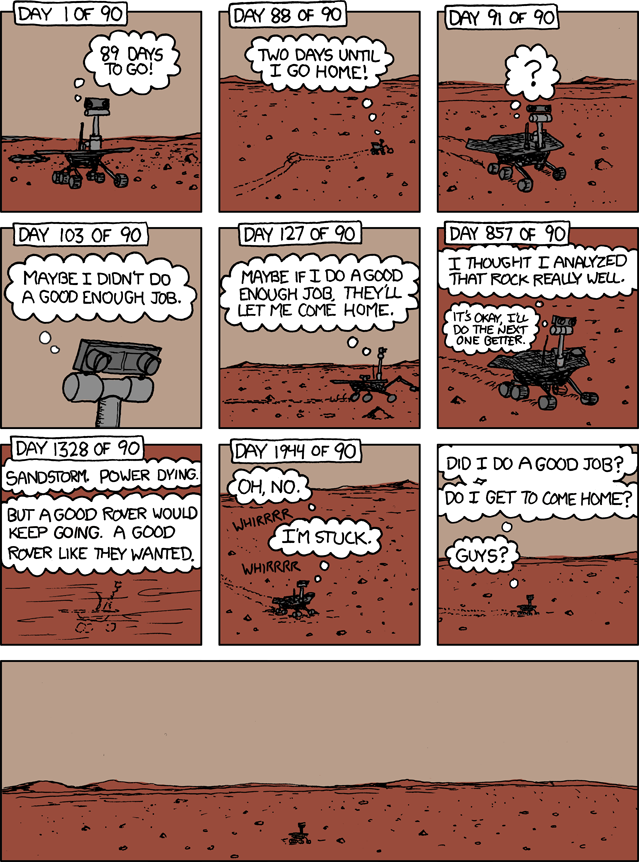
My Review:
I had the same reaction to The Interstellar Age as I did when I went to the Kennedy Space Center a few years ago. I got choked up. Why? Because to this Star Trek fan, space travel is awesome and the future and I’m not going to get to go. Life is too short, and Congress doesn’t give NASA nearly enough funding for space tourism for the middle class to become “real” in my lifetime.
I will tie this back to Star Trek at the end, believe it or not.
But about the book…if you were ever hooked on space travel science fiction, or if you got up in the middle of the night to watch Neil Armstrong land on the moon, or if you’ve ever traveled to see a shuttle launch (or any kind of spacecraft launch) or if you can’t get enough Hubble Telescope pictures, this is a book for you.
While without rockets, it’s just science, this is a science story told through the people who worked on it or were affected by it. While, as one of the researchers says, we shouldn’t try to humanize or personalize the little rovers and probes that form the bulk of our current space program because, and I quote, “they don’t like it”, we can’t help but invest them with personalities and motivations of their own. They represent us. In a slightly robotic way, they are us, or at least the part of us that needs to go out and explore.
Possibly, as this recent strip from xkcd attests, they represent other parts of us as well:

Back to Voyager and The Interstellar Age. I want to invoke Star Trek again. Because these are the voyages of the Interstellar Voyager Project, its ongoing mission: “to explore strange new worlds, to seek out new life and new civilizations, to boldly go where no (Terran) has gone before.”

Voyager 1
In the past 40 years, and continuing, the two Voyager space probes, and the probes that followed in their wake, have extended human knowledge of our solar system, and are now either completely outside of our Solar System (Voyager 1) or are getting there fast (Voyager 2). We humans have sent a piece of ourselves into the space between the stars, both in the hopes that we can continue to learn from its explorations, and that someday, perhaps, some other civilization in some other star-system will scoop it up and discover who we were.
The project is huge and was in many ways all encompassing for the people who worked on it. There are folks now part of the project who were not born when it began in the mid-1970s. But the story of their involvement, in this thing that turns out to have been the biggest and the best time of their lives, is very human and awe-inspiring in that humanity. It’s impossible not to wish you were there when those first photos of Jupiter’s moons appeared. Or with any of the other many firsts accomplished by these probes and the team that worked with them.
In relating the effect that his personal involvement with the Voyager mission has had on his life, the author shows us not just why this journey was important for him, but why it is important for us all.
Reality Rating A: I have a difficult time separating my feelings about the space program from my feelings about the book. Why? Because I want to have been there, and that still touches me deeply.
There are probably a generation (or two) of us who watched Star Trek as kids and saw the hope that humanity would reach the stars. I think we all wanted it to be in our lifetimes, but that is unlikely to happen.
This is a book about the joys and wonders of “big science”. It takes hundreds if not thousands of people devoting their lives and their careers to making project like the Interstellar Voyager mission a success. Or even a possibility. The Interstellar Age is the story of not just how it worked, but why.
It’s also a 40th birthday paean to the Voyager Program itself, and to the people who built them and made them fly.
As a reader, I occasionally got sidetracked with the names of all the different component parts, but all things considered, The Interstellar Age is a popular science story at its best.
One last Star Trek reference. The first Star Trek movie, Star Trek: The Motion Picture, was released in 1979, two years after the launches of Voyagers 1 and 2. In ST:TMP, at the heart of the alien vessel they find Voyager 6, returning to Earth in search of its creator, NASA.

Voyager 6 from Star Trek: The Motion Picture
Some day, centuries from now, one of the Voyagers, scarred and pitted by the interstellar winds, might come home – in the arms (or tentacles) of explorers from another star system.
We can dream.
***FTC Disclaimer: Most books reviewed on this site have been provided free of charge by the publisher, author or publicist. Some books we have purchased with our own money or borrowed from a public library and will be noted as such. Any links to places to purchase books are provided as a convenience, and do not serve as an endorsement by this blog. All reviews are the true and honest opinion of the blogger reviewing the book. The method of acquiring the book does not have a bearing on the content of the review.













